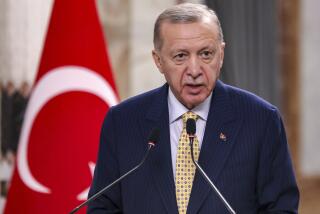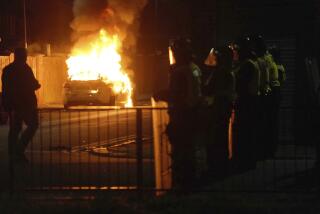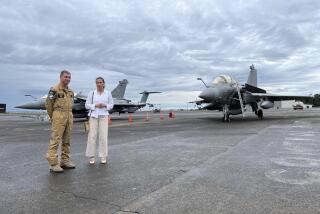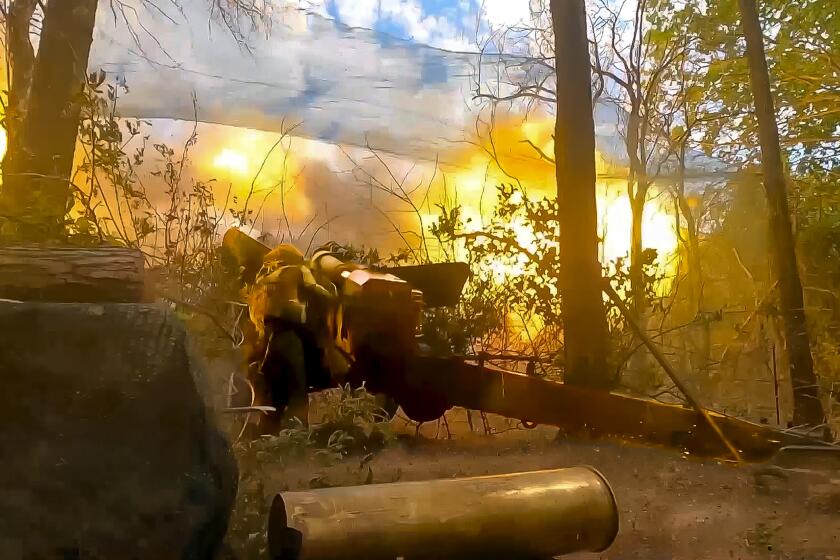Britain recognizes new Syrian opposition coalition
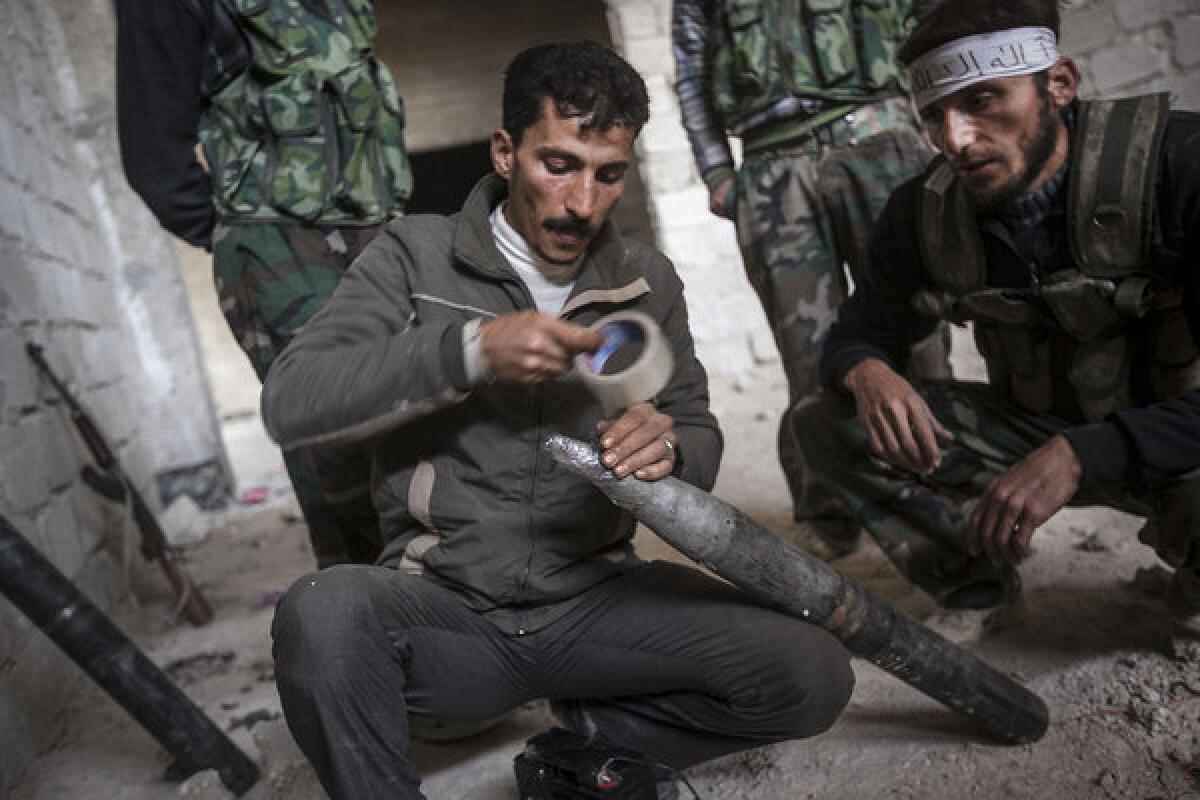
LONDON — The momentum behind a fledgling Syrian opposition coalition grew Tuesday after Britain announced that it was granting formal recognition and extending financial aid to the group.
Foreign Secretary William Hague said the British government now considered the Syrian National Coalition for Opposition and Revolutionary Forces as the “sole legitimate representative of the Syrian people.” As such, the umbrella organization of dissidents battling the regime of President Bashar Assad would be invited to send a de facto ambassador to London.
Hague’s announcement is the latest boost to the coalition’s profile as it tries to succeed where previous attempts to unite fractious anti-Assad rebels have failed. France last week became the first Western power to recognize the coalition, followed by strong statements of support — though not full diplomatic recognition — for the group Monday from the European Union and from Italy.
Hague told Parliament that the British government’s decision was rooted in assurances he received from a recent meeting with coalition leaders that they would be committed to upholding democracy, rule of law, human rights and inclusion of Syria’s many minority communities.
“They have much to do to win the full support of the Syrian people and coordinate opposition efforts more effectively. But it is strongly in the interests of Syria, of the wider region and of the United Kingdom that we support them and deny space to extremist groups,” Hague said. “Recognition imposes responsibilities on the coalition, and we will continue to press them to uphold their commitments.”
The British move adds pressure on Washington to follow suit. But the Obama administration has so far held back from offering full recognition to the group out of concern that Islamic militants or other elements hostile to the U.S. would be involved.
As a practical measure, Hague said the British government would provide $1.6 million in communications support to the coalition, which could, for example, be used to purchase satellite phones and other equipment to help rebels in Syria stay in contact with each other and the outside world. Britain will also dispatch experts to work with opposition figures on humanitarian issues.
Hague stopped short of a pledge to arm the rebels, who insist that they need heavier weaponry to counter the superior firepower and hardware of the Assad regime. Tens of thousands of people have been killed in the conflict so far. Hague did not rule out military aid altogether but said a diplomatic solution remained the preferred outcome.
“What is urgently needed is a political transition to new and legitimate leadership that reflects the will of the Syrian people and that can end the violence and begin to rebuild the country with regional and international support,” he said. “Without such a solution, everything ... we most fear is coming closer, including ever greater loss of life, instability in neighboring countries and an opportunity for extremists to pursue their own ends.”
ALSO:
Obama sends Hillary Clinton to Mideast to seek Gaza truce
Key figures in phone-hacking scandal to be charged with bribery
Hamas fires rockets at Jerusalem even as truce deal makes progress
More to Read
Sign up for Essential California
The most important California stories and recommendations in your inbox every morning.
You may occasionally receive promotional content from the Los Angeles Times.
